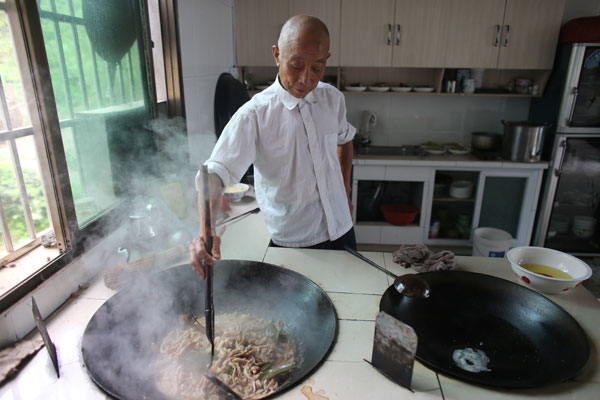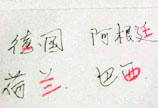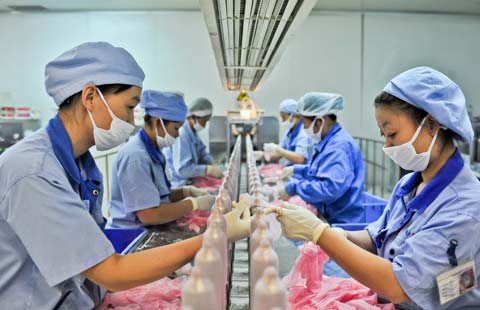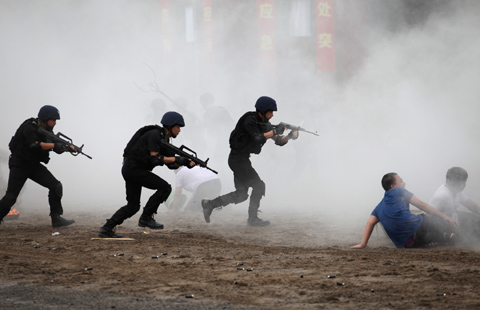Hui community thrives in Hunan
By Yang Yang and Feng Zhiwei (China Daily) Updated: 2014-06-30 09:04|
 |
| Zhabu resident Li Ruqing, 75, cooks traditional Muslim-style beef. |
Improving living standards
Many young people either go to the major cities to seek opportunities, or work in local core-board factories. In Jungongzui, a village near Laowuwan, or Ancient House Bay, which is home to the descendants of the original Li clan from Beijing, is Hunan's largest core-board factory, owned by Hongsen Wood Co. Zhabu is the largest core-board manufacturing base in Central and Southern China. In 2013, the town's core-board industry earned revenue of about 1 billion yuan ($161 million), raising local people's living standards, according to Li Penghui, the town's 34-year-old deputy head.
Because of ongoing construction work and the constant drizzle, the road leading to the Hongsen Wood factory is so churned up that every passing vehicle is quickly covered in mud.
Twenty years ago, Zhabu was desolate and poverty-stricken, but the economic upturn that followed the development of the local core-board industry has seen living standards rise, and the residents now live peaceful and relatively prosperous lives.
At the back of a white-tiled house, the drizzle, green bamboo trees and damp walls looked like a quaint, poetic Chinese painting. In the kitchen, 75-year-old Li Ruqing was busy cooking Islamic-style beef and chicken according to a special recipe he learned more than 40 years ago. He is often invited to help people cook Islamic-style food on special occasions such as Id al Fitr, or the Fast-Breaking Festival, which follows the holy month of Ramadan.
Li Jincai, 62, the owner of the house, was preparing special cakes made of sticky rice flour and salt, fried in sesame oil, which are popular at festival times. "In the past, these cakes were made to help the poor. The success of the local core-board industry mean there's little need for that these days, but we maintain the tradition anyway," he said.
Contact the authors at yangyangs@chinadaily.com.cn and fengzhiwei@chinadaily.com.cn
Peng Yining contributed to this story.
- Experts: China has strong shot to host World Cup
- Traditional opera bridges China and Austria
- PLA ships keep busy in exercises
- Terror stifles Uygur trade
- China bolsters government presence on WeChat
- $2.9 billion in soccer gambling assets seized
- CCTV anchor detained in corruption investigation
- Beijing will require use of low-sulfur coal
- Tourist draw needs new pulling power
- China promotes 4 officers to general







